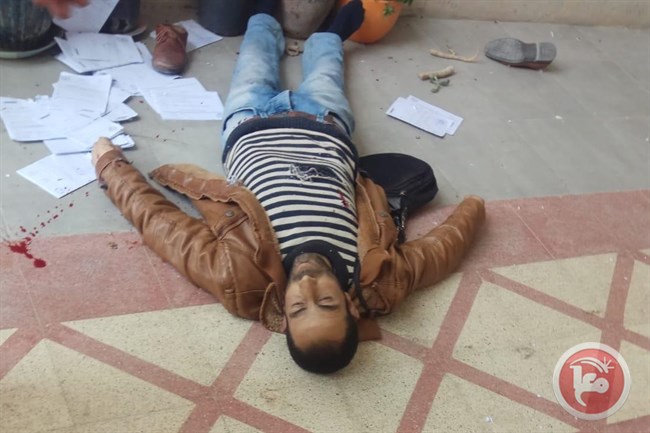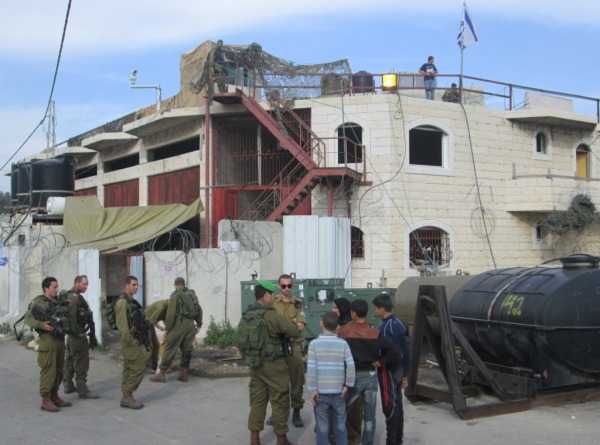Tag: Rajabi
-
Settlers move into the Rajabi building in Hebron
13th April 2014 | Hebron Rehabilitation Committee | Hebron, Occupied Palestine On Sunday 13 April 2014 in the early afternoon, Israeli settlers with assistance from the Israeli occupation forces started moving into the so-called Rajabi building in Hebron. After seven years of litigation, on 11 March 2014, the Israeli Supreme Court handed over the building to the settlers…
-
Settlers Have Continued to Occupy Palestinian Land and Attack Palestinians While Police and Soldiers Stand By and Watch
Jan 10-12 Settlers have been occupying the Jabr land near Kiryat Arba settlement in Hebron. They were supposed to have left as of tonight, but it is unconfirmed whether that has actually happened. At least 30 young settlers have been present on the land these days and have continued to use large stones to build…


